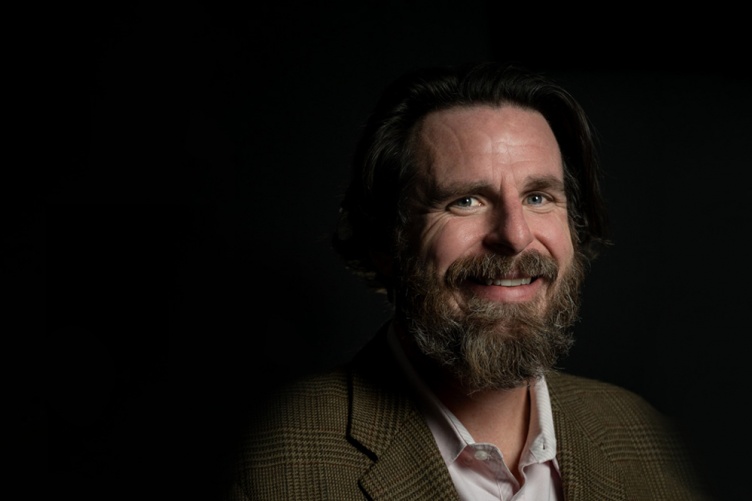
Bradley Herring is inquisitive when it comes to understanding human behavior. While some may think this would have led him to a career in psychology, sociology, or anthropology, Herring’s path instead directed him to economics, due in part to his love of math.
“Applied microeconomics is a great field for people who have a deep interest in hypothesizing why people or institutions act the way they do or make certain choices and are equally interested in uncovering and examining the data to see if it supports that premise,” said Herring, who is the Forrest D. McKerley Endowed Chair in Health Economics at the University of New Hampshire.
“Applied microeconomics is a great field for people who have a deep interest in hypothesizing why people or institutions act the way they do or make certain choices and are equally interested in uncovering and examining the data to see if it supports that premise,” -- Bradley Herring, Forrest D. McKerley Endowed Chair in Health Economics
Take, for example, Herring’s most recent research that looks at the relatively scarce competition among health insurance companies in the U.S., which are concentrated locally and geographically.
“Some might think that is bad for the consumer, as it allows the health insurer to have a monopoly of sorts and charge higher premiums. That hypothesis is a great microeconomics question,” Herring said. “The data, however, shows that there is actually a benefit to having relatively consolidated health insurance markets, which is that the insurers have the ability to negotiate relatively lower prices with hospitals and potentially provide some stronger incentives for hospitals to increase the quality of care they provide.”
Most recently associate professor in the Department of Health Policy and Management at the Johns Hopkins Bloomberg School of Public Health, Herring joined UNH in 2020 where he has a joint appointment in the Paul College of Business and Economics and the College of Health and Human Services. He has spent a good part of his career focused on several economic and policy issues related to health insurance markets and healthcare reform, including the dynamics of coverage within the employment- based and individual health insurance markets and the effects of health insurance market concentration. Herring also devotes a portion of his research on interdisciplinary projects into certain social determinants of health, specifically neighborhood poverty and the food environment. He said these projects often grew from conversations with colleagues who were interested in exploring subjects that benefited from his economics expertise.
“I came to UNH because I wanted to be part of a highly-regarded economics department in a business school, which better suits my research strengths and interests,” Herring said. “I also am really excited about my joint faculty appointment, as it gives me the ability to meet people across the university to see who is doing work related to my research and also to find new projects I cannot yet put my finger on. Where does my experience in economics intersect with their interests and how can we imagine a project that comes together where the sum is great than the parts?”
Another important factor that brought him to UNH was the ability to teach more. “I’ve mainly taught graduate students, taught courses in health economics and the U.S. healthcare system. I’m happy I’ll get to continue teaching those courses here. I also get to teach for the first time an undergraduate health economics course. I’m really excited about that,” Herring said.
It was, in fact, an undergraduate economics course that turned Herring on to the discipline while he was a biomedical engineering student at Tulane University. That course and others sparked his interest in the healthcare industry, and he would go on to earn his Ph.D. from the Wharton School’s Health Care Systems Department at the University of Pennsylvania.
Herring’s resume is deep and accomplished. He served for a year with the White House’s Council of Economic Advisers, was an assistant professor at Emory University’s School of Public Health and received a two- year RWJF Scholars in Health Policy fellowship at Yale University. He has published articles in the Journal of Health Economics, Health Affairs, and New England Journal of Medicine, and is co-author of the book “Pooling Health Insurance Risks.” He is also a frequent commentator on healthcare reform to the media – including quotes in the New York Times, Washington Post, and Wall Street Journal and appearances on C-SPAN, NPR, ABC News Radio, CBS News Radio, and local television.
In addition, Herring was awarded several awards for teaching excellence, mentoring, and advising at Johns Hopkins.
RECENT SELECTED PUBLICATIONS
Bleich S., Soto M., Jones-Smith J., Wolfson J., Jarlenski M., Dunn C., Frelier J., & Herring B. (2020). Association of Chain Restaurant Advertising Spending With Obesity in US Adults. JAMA Network Open. 3(10).
Herring B. & Trish E. (2019). Quantifying Overinsurance Tied to the Tax Exclusion for Employment-Based Health Insurance and its Variation by Health Status. Inquiry. The Journal of Health Care Organization, Provision, and Financing. 56.
Hanson C., Herring, B., & Trish, E. (2019). Do health insurance and hospital market concentration influence hospital patients’ experience of Care? Health Services Research. 54(4).
Gaskin, D.J., Herring, B., Zare, H., & Anderson, G. (2019). Measuring Nonprofit Hospitals’ Provision of Charity Care Using IRS and CMS Data. Journal of Healthcare Management. 64(5).
-
Written By:
Krysten Godfrey Maddocks '96 | College of Liberal Arts | krysten.godfreymaddocks@unh.edu




















































